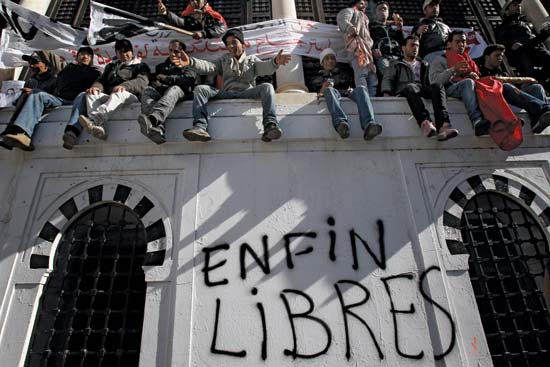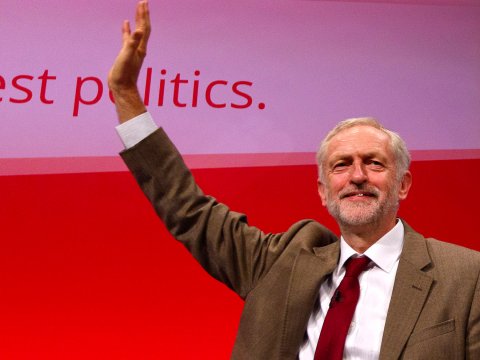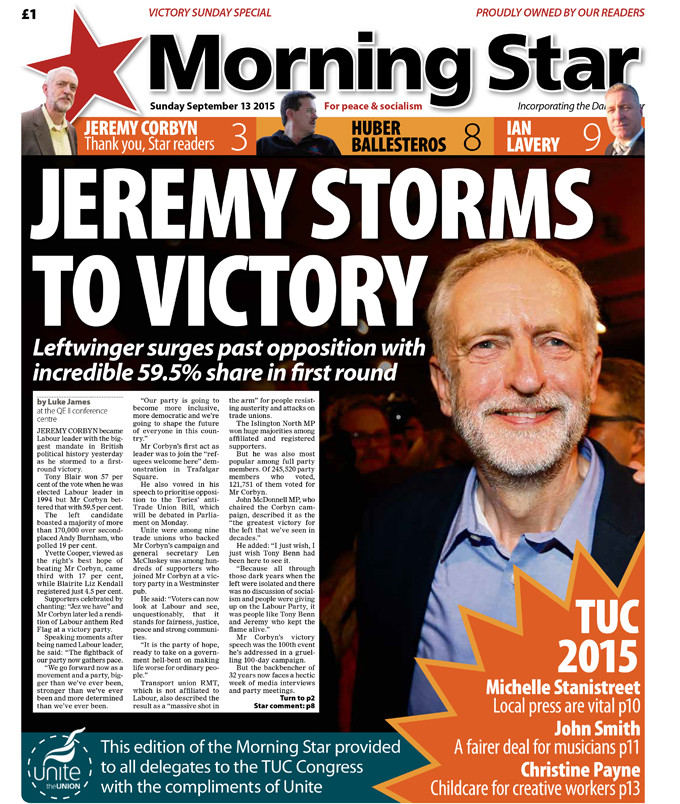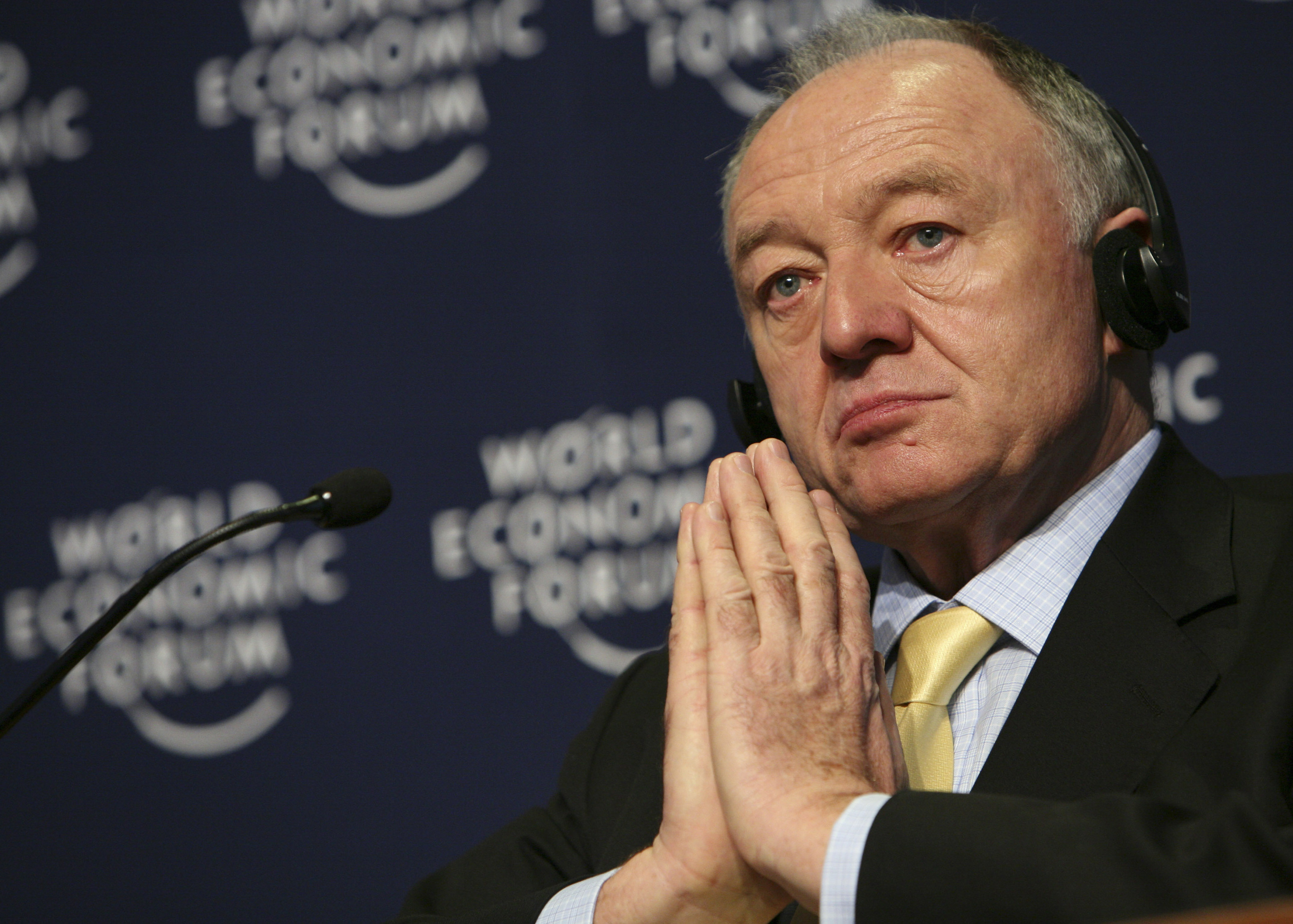Tired of being asked to "prove" that SUTR is a front organisation for the Socialist Workers Party, I made this quick Storify:
Apologies if it's a bit amateur.
Apologies if it's a bit amateur.
Solidarity with democratic revolutions worldwide | South London subcultural arcana | unearthing political confusionism | triangulating two-state, one-state and no-state solutions | critical diaspora culture | anti-antisemitism | Sylvia Pankhurst, Hannah Arendt, Bayard Rustin and W.E.B. Du Bois | dub, grime, country, soul and blue.

Hitler's initiatives in 1937 and early in 1938 in the emigration question and Palestine can best be understood in terms of Uwe Dietrich Adam's phrase Hitlers Verknupfung von Kriegsnlanung und Rassenpolitik. There is little likelihood that Hitler troubled himself to any extent with the theories and arguments of those involved in the debate over Palestine in 1937; nor is there any evidence that he expected an independent Jewish state to emerge as a result of the Peel Commission recommendations, or that he believed that German emigration policy affected the course of events in Palestine one way or the other. There can be little doubt, however, that Hitler's initiatives in all aspects of Jewish policy, especially after 1937, were prompted by the ideological requirements of a National Socialist Weltanschauung which made racial doctrine the ultimate basis of German foreign policy. That foreign policy was geared toward an eventual war for the achievement of a new racial order in Europe; its prerequisite was a new racial order in Germany. However, by early 1938, this had not yet been accomplished. The decision to continue pushing Jews to Palestine was part of an effort in 1938 and 1939 to complete the new racial order in Germany before embarking on a war for a new racial order in Europe. It was to be accomplished through the final elimination of Jewish participation in the economy, and through the forced mass-emigration schemes of the SS.
On several occasions after 1933, Hitler expressed his intention to wage war to achieve his aims in Europe. In his speech before the Reichswehr generals on 3 February 1933, his address to an assembly of Gauleiter and Party officials in Munich in September 1935, his memorandum announcing the Four-Year Plan in August 1936, and his famous Reichskanzlei meeting of 5 November 1937, Hitler indicated that he would go to war in the near future. He also believed that a domestic consolidation was a prerequisite to waging war successfully. As early as 1924, Hitler had asserted that only nach dem innern Sieg would Germany be in a position to break die eiserne Fessel seines Susseren Feindes. In his Zweites Buch, Hitler described the racial foundations of National Socialist foreign policy objectives, and the domestic pre-conditions for the success of that policy. In January, 1937, Hitler again referred to the necessary domestic ends in the Jewish question for the successful attainment of Germany's future political and military objectives. Finally, in a speech in Munich on 24 February 1938, Hitler alluded to imagined gains reaped by world Jewry in past wars, and indicated that the Jews of Germany would no longer be in a position to aid the conspiracy from within.
By early 1938, the Jews of Germany had already been removed from the political, social and cultural life of the nation as a result of legislation between 1933 and 1935. Yet, with some restrictions, Jewish participation in the economy continued to be tolerated through 1937. Moreover, there were still some 350,000 Jews in Germany by the end of 1937, although upwards of 130,000 had emigrated by the early weeks of 1938. The so-called Jewish question had not yet been solved in Germany after five years of Nazi rule; this fact was evident to the Nazi leadership as it prepared for a war which would dramatically transform the scope of that question.What this means is clear. Hitler belatedly came to support the agreement (possibly decisively, when other Nazis were questioning it) and Jewish emigration to Palestine at a very particular point. This point was not "before he went mad", but rather after it looked like the policy did not run the danger of creating a Jewish national state (something which Hitler and other Nazi thinkers strongly opposed), and before the Nazi state had the ability to move on to Hitler's ideal solution to the Jewish question. That preferred solution was of course elimination, the solution that was already outlined in Mein Kampf before Hitler had even come to power, on which the Nazis embarked once war started in 1939.

When I confronted @SeumasMilne about Syria, @FromSteveHowell implied I was an al Qaeda supporter. I was at a table with a Syrian refugee.— Oz Katerji (@OzKaterji) February 27, 2017
That's a link to a HuffPo blogpost by a completely oddball blogger who in 2014 was endorsing the far right Rand Paul for American president. The lack of judgement involved in thinking this was a decent link to back up your views is a bit of concern in Labour's new campaign chief.Some people in Britain are hurling abuse @TulsiGabbard on Twitter over her #StopArmingTerrorists stance. For record https://t.co/9hbidpJOzb— Steve Howell (@FromSteveHowell) February 28, 2017
 |
| Some women who punched fascists, Yugoslavia, 1943 |
"The genocidal legacy of fascism is too potent to brush away as a historical memory. Fascism doesn’t respect the norms and values that underpin a liberal society: it celebrates violence and aggression; it rejects tolerance and peace; it is assertively anti-rational. Invoking liberal tolerance when talking about an intolerant belief-system is scandalously myopic, so the argument goes. If someone doesn’t recognise the basis by which you can articulate your liberal vision, denies the basis of black and Jewish and brown people’s claim to moral legitimacy, threatens the safety of minority groups through eliminationist rhetoric, this doesn’t constitute a mere disagreement — this is irreducibly dangerous rhetoric. It is thus justifiable to punch and to prevent, by any means necessary, people like Richard Spencer from speaking publicly."He then holds this argument up to some scrutiny, based on actual evidence, and finds it wanting on many counts, and it is this part of the post I will respond to.
"[AFA] applied a ‘twintrack’ strategy: physical confrontation combined with ideological struggle. AFA not only wanted to restrict, contain, and ultimately eradicate fascist activity through a physical war of attrition with fascists on the streets, it also counteracted fascist propaganda, typically through public-speaking, organising concerts and other events, and leafleting working-class housing estates."My view is that fascism can not be defeated without violence, but it can not be defeated only by violence.
"Trump is the dream for the writer who has transitioned from writing dark comedy to writing tragedy; his hostility to the New York Times and the free press would be funny if he wasn’t the elected executive of the most powerful liberal democracy in the world; his humiliation of the social conservatives who have excused his wandering phallus and serial dishonesty would be funny if the victims of his predation and lies were not vulnerable women and ethnic minorities; his exposure of the liberal tendency to cry wolf at previous president’s alleged racism would be funny if he wasn’t the wolf stalking the forest. Some of the responses to him would be funny if he wasn’t manifestly a threat to the norms and institutions of liberal democracy. The seriousness of the threat he poses needs robust opposition, not one ready to celebrate vigilantism and the costs, both consequential and moral, that come with it."That is true, but it misses the point. Most people who argue that we should punch fascists are not arguing that Trump is a fascist. The relationship between Trump and fascism is complicated. To put it crudely, Trump's rhetoric emboldens fascists, and thus fascism as a movement becomes dangerous, not because it will rise to power but because it spreads terror. So, we have to seriously respond (non-violently) to the serious large-scale threat Trump poses - but we also have to seriously respond (perhaps violently) to the serious if small-scale threat that resurgent violent fascism poses in our communities.
This is the first time that an American president has committed the United States to side with democratic reformers worldwide. The end of the cold war has allowed us such parameters, but the American people also should be aware of the hard and necessary decisions entailed in such idealism that go way beyond the easy rhetoric of calling for change in Cuba, Syria, or Iran: distancing ourselves from the Saudi Royal Family, pressuring the Mubarak dynasty to hold real elections, hoping that Pakistan can liberalize without becoming a theocracy, and navigating with Putin in matters of the former Soviet republics; all the while pressuring nuclear China, swaggering with cash and confidence, to allow its citizens real liberty.The day before, I quoted another expression of the neoconservative credo, from Condoleeza Rice:
"The world should apply what Natan Sharansky calls the 'town square test': if a person cannot walk into the middle of the town square and express his or her views without fear of arrest, imprisonment, or physical harm, then that person is living in a fear society, not a free society. We cannot rest until every person living in a 'fear society' has finally won their freedom."That day seems much further off in 2017 than it did in 2005.
Barack Obama was absolutely correct to take steps to close down the Camps at Guantanamo as one of the first moves of his presidency. The Camps are a stain on America, a stain on humanity.Of course, Obama did not manage to close down the camps nice and quick, but the hope/change show did spread to some of these autocracies (most notably Egypt, Tunisia and Syria), and sadly, when it mattered most, neither Obama nor the anti-war left proved as supportive of that hope/change movement as they might have been.
But it will be interesting to see the extent to which those European liberals who have clamoured so vocally for its closing are equally vocal in welcoming the released inmates to their shores.
And, as inmates are released but cannot be returned to their home states because they will be tortured or executed there - such as the ethnic Uyghurs, who cannot be returned to China because of the routine detentions and extra-judicial executions of those Uyghurs who call for the self-determination of their 8 million-strong people, or the Algerians, whose government imprisons its lawyers simply for calling attention to the impunity of its judiciary - it will also be interesting to see the extent to which the liberals' loathing of George W Bush for his war crimes is transferred to these other regimes, whose carceral systems make Camp X-Ray look like Sunday School.

Terry Glavin, Canadian social democrat, is blogging about Iran, from the perspective of working class solidarity, in a post entitled “Will you be a lousy scab or will you be a man?” While my location in inner South London gives me cause for pessimism, Terry's more global perspective gives him cause for optimism. He sees a coming convulsion led by the youth, things getting better, and an "anti-totalitarian surge". Kellie Strom also highlights the same anti-totalitarian wave in the Mediterranean.The gale did howl. Some despots fell. Others have been clinging on, and we in the West have mostly just let them.
A choice phrase from Phil: "Saudia Arabia, long the Costa Brava of forcibly retired tyrants". The (over-optimistic?) conclusion: "With sustained struggle and determined action, the dictatorial obscenities of the Middle East could be entering their final days. Let despots everywhere tremble as the revolutionary gale howls about their ears."
I believe that nationalism is one of the greatest evils in the world. I distinguish nationalism from what Orwell calls patriotism or Rudolf Rocker calls “national feeling”. Patriotism or national feeling is a potentially benign affect, whereas nationalism is an ideology. Love of one’s homeland or one’s compatriots is common, healthy, perfectly compatible with sentiments of international solidarity, cosmopolitan justice, ethnic pride or class consciousness. It can be mobilised for good aims, such as resistance to tyranny or social solidarity within the nation.
Orwell writes that: “Both words [nationalism and patriotism] are normally used in so vague a way that any definition is liable to be challenged, but one must draw a distinction between them, since two different and even opposing ideas are involved. By ‘patriotism’ I mean devotion to a particular place and a particular way of life, which one believes to be the best in the world but has no wish to force on other people. Patriotism is of its nature defensive, both militarily and culturally. Nationalism, on the other hand, is inseparable from the desire for power. The abiding purpose of every nationalist is to secure more power and more prestige, not for himself but for the nation or other unit in which he has chosen to sink his own individuality.”
The nation is a fairly recent invention, and the organisation of sovereignty on the basis of nations is so far but a fairly brief phase in human history. Organising sovereignty on the basis of nations is, in my view, inherently problematic, because it always excludes those who, while living within the state’s territory, are not “of” the nation – it excludes them from the right to participate fully in the affairs of the state. Historically, we know where this leads: to ethnic cleansing, to genocide.
In the late twentieth century, there were signs that the deadly allure of the nation-state-territory trinity was weakening. The cosmopolitan project of the United Nations and the building of institutions of international law, the supra-national project of the European Union, the dissemination of the American model of “civic patriotism”, the number of countries who shifted from the principle of blood (jus sanguinis) to that of birth (jus soli) in their citizenship policies – these gave some grounds for optimism.
Now, after the massacres in Sudan, Sri Lanka, Rwanda and Yugoslavia, after the renewal of communalism in the Indian subcontinent and its re-emergence in Iraq, after the flowering of infra-national conflicts in the former Soviet empire, after the Second Intifada, there is little space for hope. More than ever, I believe, we require the political imagination to relegate the deadly age of the nation-state to the past.The cosmopolitan projects I invoked here are now lying in tatters. The principles of responsibility to protect and global justice were tarnished by the war on terror under Bush and Blair which used them as an alibi for self-interested but incompetent deadly military adventures, then made a joke by Obama who spoke fine words while abstaining from any action. The Brexit vote and Trump election, and similar trends globally, show that the nostalgic desire for national sovereignty ("control", "greatness", isolation,) carries far more weight than cross-border solidarity; even civic nationalism is suspect in a time when "citizen of the world" is an insult; more people want walls than bridges.

 3. Free advice to Jeremy
3. Free advice to JeremyI would strongly defend Labour from those who say that this stuff is "rife" in the party. It's not, contra Boris, a "virus" in the party. Most party members are appalled by it. But I do think that Labour, and the left as a whole, does have some kind of a problem with antisemitism. And it needs - we need - to face up to it.5. Lenni Brenner says Ken's wrong
Irving's reputation as a historian was discredited[4] when, in the course of an unsuccessful libel case he filed against the American historian Deborah Lipstadt and Penguin Books, he was shown to have deliberately misrepresented historical evidence to promote Holocaust denial.[5] The English court found that Irving was an active Holocaust denier, antisemite, and racist,[6] who "for his own ideological reasons persistently and deliberately misrepresented and manipulated historical evidence".[6][7] In addition, the court found that Irving's books had distorted the history of Adolf Hitler's role in the Holocaust to depict Hitler in a favourable light.What is more interesting, perhaps, is the way he phrases it in his tweet: that study of WWII took him to Irving. What study of WWII would lead you towards, rather than away from, Irving? Not a study of actual facts or historiography, but perhaps spending too much time in the conpiratorial corners of the internet.
President Roosevelt told French military leaders at the Casablanca Conference in 1943 that “the number of Jews engaged in the practice of the professions” in liberated North Africa “should be definitely limited,” lest there be a recurrence of “the understandable complaints which the Germans bore towards the Jews in Germany…”
— Rosalind Hardie (@adinnieken) November 19, 2016
@bobfrombrockley no words. Invitation to Assange and Galloway in context. pic.twitter.com/Rba2rbMgm9— Rosalind Hardie (@adinnieken) November 19, 2016
@bobfrombrockley @Otto_English He proclaims "Jimmy #Saville is innocent!" along with every other man accused of sexual violence. pic.twitter.com/M8JX51l3Xo— Rosalind Hardie (@adinnieken) November 20, 2016
Craving the legitimacy that an alliance with progressive forces can provide, reactionaries seize on ostensibly shared positions, chief amongst them opposition to corrupt élites, to create the impression that progressives could benefit from making common cause with them.





[The left] are not inoculated against being antisemitic or racist – or sexist, for that matter. Progressives for whom the Palestinian cause is important can have blind spots over, and be desensitised to, antisemitism. Yes, it’s hard to admit susceptibility to such “isms”, but acceptance (we are all susceptible) really is the first step. And the onus is on the progressive left to get this right (this step being one of the things that “progressive” means). So it doesn’t work for the left to counter accusations of antisemitism by saying the Tories have a bigger racism problem: true, but hardly the point.I take a little bit of hope from the fact that quite a lot of Momentum supporters - Barbara Ntumy, Manuel Cortes, Andy Newman, Aaron Bastani, Owen Jones, among others - have unambiguously criticised Jackie Walker for her series of dodgy comments about genocide, slavery, Zionist conspiracy, and Jewish fear of antisemitic violence. Although a small number of Jewish anti-Zionists are providing her with cover, I feel the tide might be turning on the tolerance of this sort of thing on the left.

In 2010 a man called Martin Smith (“Comrade Delta”) was the National Secretary of the SWP, its day to day leader, the person who employs the other party workers. In July of that year, a 17 year old woman (“Comrade W”) complained that he had mistreated her. She didn’t use the word “rape”, but the people who met her and heard her knew what she was talking about. From the start, Smith’s supporters (including Weyman Bennett, who worked with him on the SWP’s anti-fascist campaign) put pressure on the women who helped Comrade W, calling one of them a “traitor”, ostracising and dismissing them and forcing them out of the SWP.So, yes, stand up to racism - but not by associating with this lot.
Jackie Walker’s bizarre repeated insistence on playing some sort of sick competitive “top trumps” comparison between the WW2 anti Jewish Holocaust and the centuries long mass enslavement and holocaust of Africans, should be utterly unacceptable to socialists. Particularly when she repeats that utter historical lie, propagated mainly by the previously deeply, and openly, anti-Semitic Nation of Islam movement in the USA, that:
“many Jews (my ancestors too) were the chief financiers of the sugar and slave trade which is of course why there were so many early synagogues in the Caribbean.”
“Chief Financiers” of the slave trade? This is an utter lie, with no historical basis whatsoever. It is an anti Semitic trope, playing into a long established seam of anti-Semitism within the US, but also, UK Black communities.
Add this to her more recent, extraordinary comments, which show a staggeringly cavalier disregard for the facts about Holocaust Memorial Day, and the conclusion must be clear – Jackie Walker’s membership of both the Labour Party and Momentum is utterly unacceptable.
As a lifelong anti fascist and internationalist socialist, and a Momentum organiser in North Shropshire, I feel personally offended to be in the same organisations as this person – and deeply concerned that the Momentum Leadership ever allowed Ms Walker to remain in Momentum after her first extraordinary outburst.
If Jackie Walker isn’t expelled from Momentum after her latest offensive intervention (which appears to me to be simply an example of some strange deliberately controversial attention seeking behaviour) I’m sure many of us will have to reconsider our membership of Momentum.It's always a pleasure to come across John's comments online. I've never met him, but he is one of the unsung heroes of post-war British militant anti-fascism and (via Anti-Fascist Action and Red Action) had a major indirect influence on my own political development half a generation later. If the left had more comrades like him, I'd feel a lot more at home here.
“I love the Jews really only en masse, en détail I strictly avoid him.” – Wilhelm von Humboldt, quoted by Hannah Arendt
I remember seeing a picture of Fidel Castro in a parade with lots of other Cubans. It was during the emergency years, the "special period" when Cuba's relationship with the Soviet Union had collapsed and there was little gas or oil or fertiliser; people were struggling to find enough to eat. It was perhaps Cuba's nadir, as a small Caribbean island nation considered a dangerous threat by its nearest neighbour, the United States - which, during this period, tightened its embargo. Fidel, tall, haggard, his clothes hanging more loosely than usual from his gaunt frame, walked soberly along, surrounded by thousands of likewise downhearted, fearful people...
However poor the Cubans might be, I realised, they cared about each other and they had a leader who loved them. A leader who loved them. Imagine. A leader not afraid to be out in the streets with them, a leader not ashamed to show himself as troubled and humbled as they were. A leader who would not leave them to wonder and worry alone, but would stand with them, walk with them, celebrate with them - whatever the parade might be.
This is what I want for our country, more than anything. I want a leader who can love us.
“I have never in my life ‘loved’ any people or collective – neither the German people, nor the French, nor the American, nor the working class or anything of that sort. I indeed love ‘only’ my friends and the only kind of love I know of and believe in is the love of persons… I do not ‘love’ the Jews, nor do I ‘believe’ in them; I merely belong to them as a matter of course, beyond dispute or argument.”